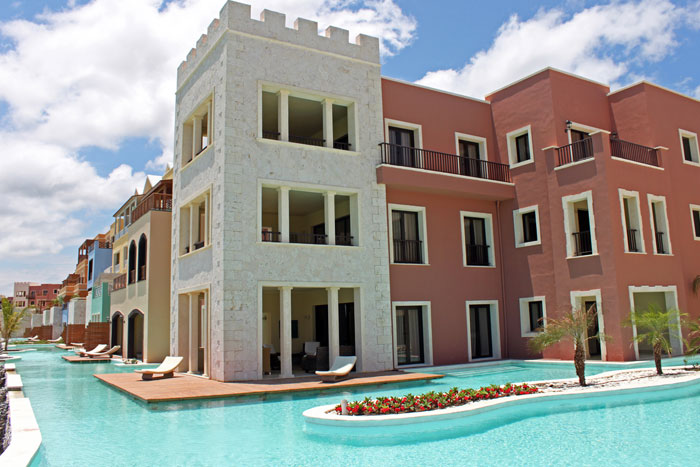Home How to Start a Business in Dominican Republic
How to Start a Business in Dominican Republic by Gabrielle van Welie
Are you ready to start a business overseas? Dominican Republic can be a great destination.For one, you have the usual perks of nearby beaches and the relaxed lifestyle. On the other hand, there are many investment opportunities in Dominican Republic thanks to the government’s interest in fostering foreign-funded development. After all, new businesses means more jobs for the local population.Still not sure which way to go? Let’s take a deep dive into why and how to start a business in Dominican Republic.
Why start a business in Dominican Republic
Dominican Republic has the third-lowest inflation rate in the Americas, closely behind Ecuador and El Salvador, and the third-fastest growing economy. It is also known for its high level of connectivity thanks to its transport infrastructure, which counts with eight international airports, 11 ports and over 25,000-kilometers worth of highways and roads.Currently, the key sectors are tourism, agriculture, mining and textiles, which are enhanced by the Dominican Republic’s Free Trade agreements, signed with 48 countries thus far.On top of this, the Dominican government offers plenty of incentives and investment opportunities for foreign-owned businesses in the country. The major perk is the free-trade zones found across the territory that enable businesses to operate tax-free.These free-trade zones are not only good for investors, but they have also created 140,000 active jobs, thus contributing significantly to the country’s economic growth.
Types of business entities available in Dominican Republic
Limited Liability (Sociedad de Responsabilidad Limitada, SRL)
Individual Enterprise of Limited Liability (Empresa Individual de Responsabilidad Limitada, EIRL)
Joint Stock (Sociedad Anónima, SA)
Simplified Joint Stock (Sociedad Anónima Simplificada, SAS)
Establishing a business in Dominican RepublicNow that you’ve picked the type of business entity that works for you, the next step is finding a domicile for your new business.As discussed, free-trade zones are found across the country and can be a smart move for businesses looking to produce and sell products. In fact, we have some available on our website.Next up, it’s time to start preparing the paperwork to set up shop.Note: all submitted documentation will need to be in Spanish.
Your first stop is the Oficina Nacional de la Propiedad Industrial (National Office of Industrial Property), where you can check if your ideal company name is still available and ultimately purchase it.Once the name is published in the Office’s monthly publication, which may take up to 10 days, you’re ready to visit the Chamber of Commerce. Here, you can register your company with the help of a lawyer, who should be a resident of Dominican Republic.If approved, you will pay an incorporation tax equivalent to 1% of the capital needed to the Internal Revenue Service (DGII) and secure your identification number (RNC).Afterwards, you file for the National Taxpayers Registry at the Dirección General de Impuestos Internos (DGII) and apply for fiscal receipts so you can invoice clients. This same entity will then verify your business and provide you with the official documentation so you can begin operating.
A few extra detailsIf you want to hire employees, you will need to register with the Department of Labor, which can be done online. A local resident will then need to register the employees at the Consejo Nacional de Seguridad Social (CNSS) so they can have access to social security. Be sure to bring a copy of your incorporation documents and tax ID.Last but not least, know that all incorporated companies must prepare financial statements for the IFRS, and if the company must be audited if its gross income is higher than 100 minimum wages.While the process might sound like a lot, it’s all about breaking it down and following it step by step.Remember, the first thing you need is finding where to open your new business. Once you have that, your real estate agent will be able to point you in the right direction. In no time, you’ll be making the most of your new locale.
So, ready to start a business in Dominican Republic?
Are you ready to start a business overseas? Dominican Republic can be a great destination.For one, you have the usual perks of nearby beaches and the relaxed lifestyle. On the other hand, there are many investment opportunities in Dominican Republic thanks to the government’s interest in fostering foreign-funded development. After all, new businesses means more jobs for the local population.Still not sure which way to go? Let’s take a deep dive into why and how to start a business in Dominican Republic.
Why start a business in Dominican Republic
Dominican Republic has the third-lowest inflation rate in the Americas, closely behind Ecuador and El Salvador, and the third-fastest growing economy. It is also known for its high level of connectivity thanks to its transport infrastructure, which counts with eight international airports, 11 ports and over 25,000-kilometers worth of highways and roads.Currently, the key sectors are tourism, agriculture, mining and textiles, which are enhanced by the Dominican Republic’s Free Trade agreements, signed with 48 countries thus far.On top of this, the Dominican government offers plenty of incentives and investment opportunities for foreign-owned businesses in the country. The major perk is the free-trade zones found across the territory that enable businesses to operate tax-free.These free-trade zones are not only good for investors, but they have also created 140,000 active jobs, thus contributing significantly to the country’s economic growth.
Types of business entities available in Dominican Republic
Limited Liability (Sociedad de Responsabilidad Limitada, SRL)
- Must have between 2-50 members
- Liability is limited to capital contribution
- Minimum capital of RD$100,000, equivalent to US$2,000
- At least 1% of the capital must be paid-in upon incorporation
Individual Enterprise of Limited Liability (Empresa Individual de Responsabilidad Limitada, EIRL)
- Limited liability company composed of only one person
- There is no minimum or maximum capital required
Joint Stock (Sociedad Anónima, SA)
- Must have at least two shareholders at time of incorporation
- Shareholder liability is limited to capital contribution
- Capital is constituted by freely transferable shares with a minimum capital of RD$30 million, equivalent to US$600,000
Simplified Joint Stock (Sociedad Anónima Simplificada, SAS)
- Must have at least two shareholders at time of incorporation
- Shareholder liability is limited to capital contribution
- Capital is divided into nominative shares
- The value of said shares is set by bylaws
- Minimum capital of RD $3 million, equivalent to $60,000, of which 10% must be paid-in at time of incorporation
Establishing a business in Dominican RepublicNow that you’ve picked the type of business entity that works for you, the next step is finding a domicile for your new business.As discussed, free-trade zones are found across the country and can be a smart move for businesses looking to produce and sell products. In fact, we have some available on our website.Next up, it’s time to start preparing the paperwork to set up shop.Note: all submitted documentation will need to be in Spanish.
Your first stop is the Oficina Nacional de la Propiedad Industrial (National Office of Industrial Property), where you can check if your ideal company name is still available and ultimately purchase it.Once the name is published in the Office’s monthly publication, which may take up to 10 days, you’re ready to visit the Chamber of Commerce. Here, you can register your company with the help of a lawyer, who should be a resident of Dominican Republic.If approved, you will pay an incorporation tax equivalent to 1% of the capital needed to the Internal Revenue Service (DGII) and secure your identification number (RNC).Afterwards, you file for the National Taxpayers Registry at the Dirección General de Impuestos Internos (DGII) and apply for fiscal receipts so you can invoice clients. This same entity will then verify your business and provide you with the official documentation so you can begin operating.
A few extra detailsIf you want to hire employees, you will need to register with the Department of Labor, which can be done online. A local resident will then need to register the employees at the Consejo Nacional de Seguridad Social (CNSS) so they can have access to social security. Be sure to bring a copy of your incorporation documents and tax ID.Last but not least, know that all incorporated companies must prepare financial statements for the IFRS, and if the company must be audited if its gross income is higher than 100 minimum wages.While the process might sound like a lot, it’s all about breaking it down and following it step by step.Remember, the first thing you need is finding where to open your new business. Once you have that, your real estate agent will be able to point you in the right direction. In no time, you’ll be making the most of your new locale.
So, ready to start a business in Dominican Republic?
Properties Search Results
Previous article
Descubriendo República Dominicana: Playa Juanillo
Next article
Cómo iniciar un negocio en República Dominicana



